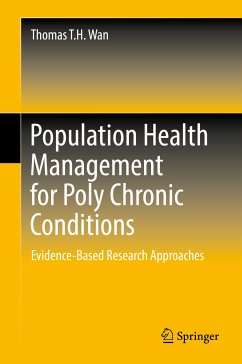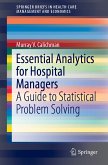This book is dedicated to population health management and how it can be used to improve the health care and outcomes for patients with poly chronic conditions. The book uses an integrated approach guided by a transdisciplinary orientation that incorporates both a macro and a micro-theoretical framework for promoting population health management. Thus, policy decision makers can prioritize how limited resources can be used to optimize health service needs of the chronically ill and disabled in the nation as well as in the globe. The book also identifies appropriate applications of health information technology that can facilitate interoperability, data sharing and effective communication to ensure that applicable knowledge is derived from the available information. Multiple implications of population health management for poly chronic conditions suggest that concerted efforts in promoting preventive strategies can yield numerous benefits. Continuous improvement efforts through impactevaluation and a commitment to the adoption of the health information technology resources needed are also critical aspects of this process. Patients with poly chronic conditions have complex needs and are often high-utilizers of health services. Great potential exists to improve the health and health care of these individuals through improved coordination integrating multiple domains of the population health management approach. Population Health Management is needed now more than ever due to the current challenges facing the health care system that were not present in previous decades. This book points out strategic directions suggested by empirical evidence and experts' opinions on innovative care management solutions observed in many advanced countries.
Dieser Download kann aus rechtlichen Gründen nur mit Rechnungsadresse in A, B, BG, CY, CZ, D, DK, EW, E, FIN, F, GR, HR, H, IRL, I, LT, L, LR, M, NL, PL, P, R, S, SLO, SK ausgeliefert werden.









